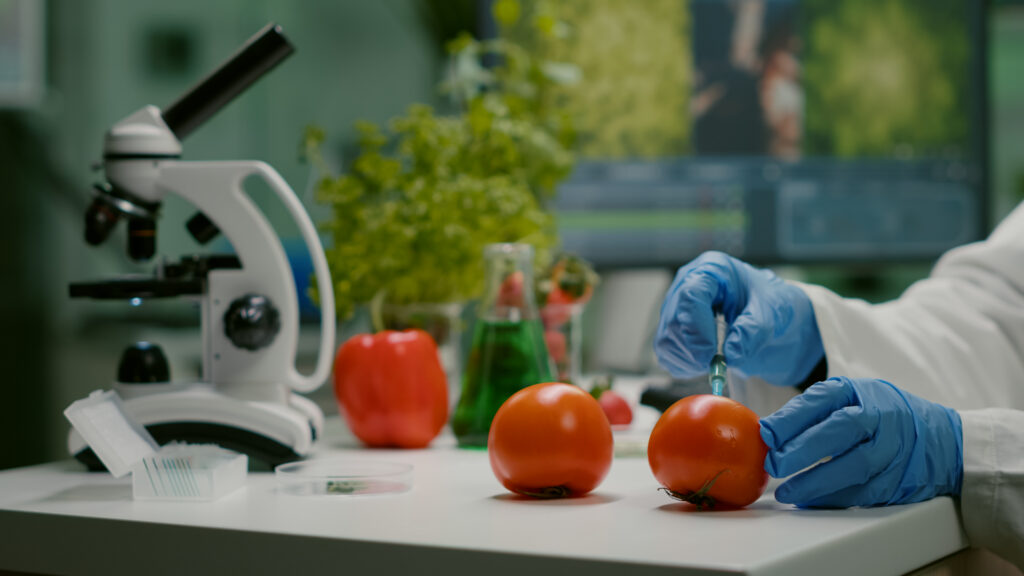An organism’s genome can be altered at specific spots using a set of cutting-edge procedures called gene editing (GE). Agriculture is one of the main industries where gene editing is used. It is essential for producing crops with desirable qualities such higher resistance to pests and diseases, enhanced yield, and improved nutritional value. Both the public and private sectors use it extensively to create novel features in crops of interest.
In accordance to S&P Global, with 5% of items in the pre-commercialization stage and 49% in the advanced research phase, the private sector currently contributes 43% of the total product development. Corteva Agriscience, Yield10 Bioscience, Benson Hill, Arcadia Biosciences, Calyxt, and Inari Agriculture are the most active businesses in the field of agricultural gene editing.
With gene editing, the research focus is more diverse in terms of crops and traits than it is with genetically modified organisms (GMOs), where trait development is concentrated on cereals and oilseed crops. Approximately 23% of the products are being developed for the vegetable segment, 7% for fruits, and 3% each for ornamentals, legumes, forage, and grasses.
Because conventional and cutting-edge plant breeding approaches as well as genetically modified plants (GMs) compete to improve plant genetics, the market for gene-edited goods and traits is extremely competitive.
In terms of vegetables, Sanatech Seed began selling GABA tomatoes in 2021 in Japan. It is anticipated that Pairwise’s ConsciousTM Foods line of gene-edited green leafy vegetables, which has been tweaked to improve the palatability, flavor, and colors for healthy snacking options, would hit the USA market through retail channels and restaurants in 2023. However, the categories of grains and oilseeds account for 55% of the products, continuing to dominate crop-based product development.
Companies are using gene editing to generate a variety of traits for biotic stress resistance and changed composition, plant yield, and abiotic stress tolerance, which were previously only possible in GMOs and were input-oriented attributes. Gene-editing techniques are also being used to produce traits for bioenergy crops, and businesses are forming alliances in the bioenergy sector.
Examples of these partnerships in alternative energy crops include pennycress with Bayer (a major stakeholder), Bunge, Chevron, and British Petroleum; carinata with Nuseed (Nufarm); camelina with Sustainable Oils (owned by GCEH), World Energy; ExxonMobil (25% stake in GCEH); and various agribusiness firms.
Governments all around the world are becoming more receptive to embracing GE agricultural goods as a result of the demand for increased yields. The adoption of some GE crops could yet be slowed down by prospective regulatory constraints, trade hurdles, ethical and environmental concerns, as well as consumer and merchant acceptance.
Gene-editing is unrestricted in the USA, Brazil, Argentina, Paraguay, Ecuador, Colombia, Israel, and Chile. When utilized for genome alterations involving an addition or deletion of base pairs (referred to as targeted mutagenesis and cisgenesis), these nations view gene editing as being similar to traditional breeding.
Targeted mutagenesis and cisgenesis are being regarded as non-GM in nations including Canada, Nigeria, the Russian Federation, Japan, Australia, India, Pakistan, the Philippines, and Indonesia. These nations also have defined norms and procedures in place for the case-by-case review of gene-edited products. However, a new regulatory framework for plants created utilizing gene-editing methods is being created by the European Union, China (mainland), and the United Kingdom.
The market for GE goods and features is very cutthroat. While grains and oilseeds lead gene-edited crop development, global acceptance grows, though regulatory, ethical, and environmental factors may pose challenges. As regulations evolve, gene editing promises to elevate crops to higher ethical and environmental standards, revolutionizing our food systems.
References:
Bullion, Alan., & Malhotra, Bahrti. 2023. S&P Global; Gene-edited crops market growth spurred by regulatory progress and approvals. Retrieved from https://www.spglobal.com/commodityinsights/en/ci/research-analysis/gene-edited-crops-market-growth-spurred-by-regulatory-progress.html
Image by DCStudio https://www.freepik.com/

